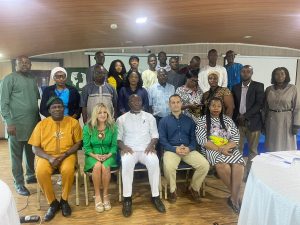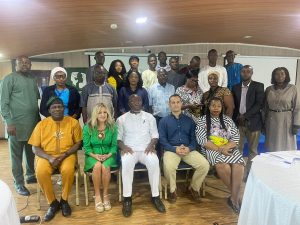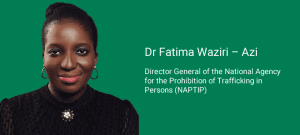 The National Agency for the Prohibition of Trafficking in Persons (NAPTIP) has revealed that a staggering number of 25,000 Nigerian women and girls are currently trapped in Mali.
The National Agency for the Prohibition of Trafficking in Persons (NAPTIP) has revealed that a staggering number of 25,000 Nigerian women and girls are currently trapped in Mali.
This came to light during a workshop organized by NAPTIP in collaboration with FIIAPP and A-TIPSOM to raise awareness about the dangers of human trafficking.
According to NAPTIP, these victims are drawn to Malian men because they spend more money on women and take pride in being involved with Nigerian women, considering Nigeria as the “giant of Africa.” NAPTIP also shared its commendable achievements, including the arrest of over 9,102 human traffickers, conviction of 604 offenders, and the rescue of 20,660 victims between 2004 and May 2023.

Recognizing the critical role of the media in preventing trafficking and protecting victims, NAPTIP stressed the importance of collaboration. Prof. Fatima Waziri-Azi, the Director General of NAPTIP, identified Libya, the United Arab Emirates, Ghana, Cote d’Ivoire, and India as the top destinations for Nigerian trafficking victims.

In another development, Nigeria and The Gambia signed a memorandum to jointly address trafficking in persons, particularly women and children. The agreement aims to enhance efforts in preventing, suppressing, and punishing human trafficking. This partnership is seen as a significant step forward in the fight against trafficking, with both countries committed to working together to make a substantial impact.
These collective efforts seek to protect vulnerable individuals and ensure their safety amidst the pervasive issue of human trafficking.





